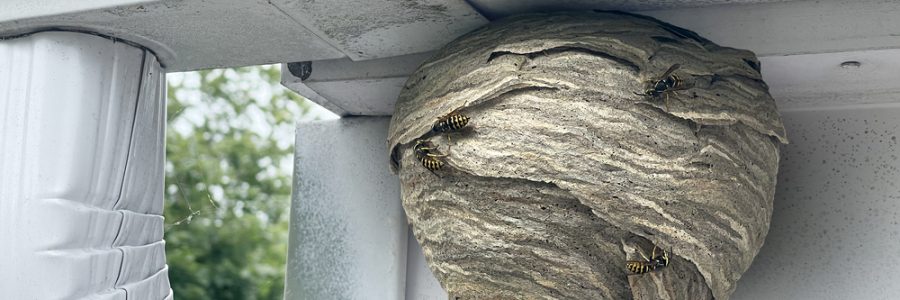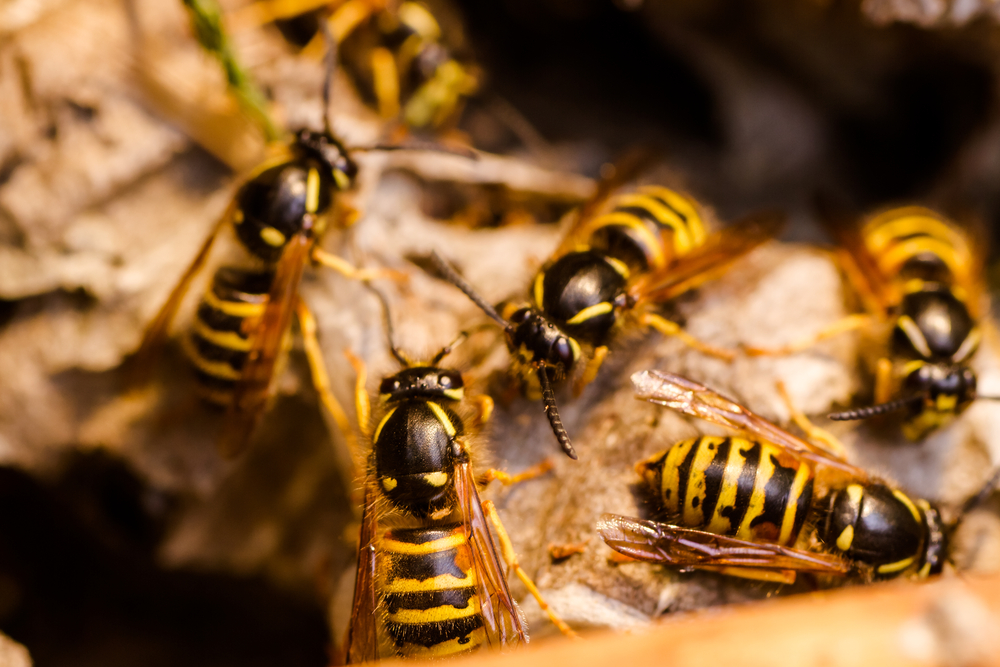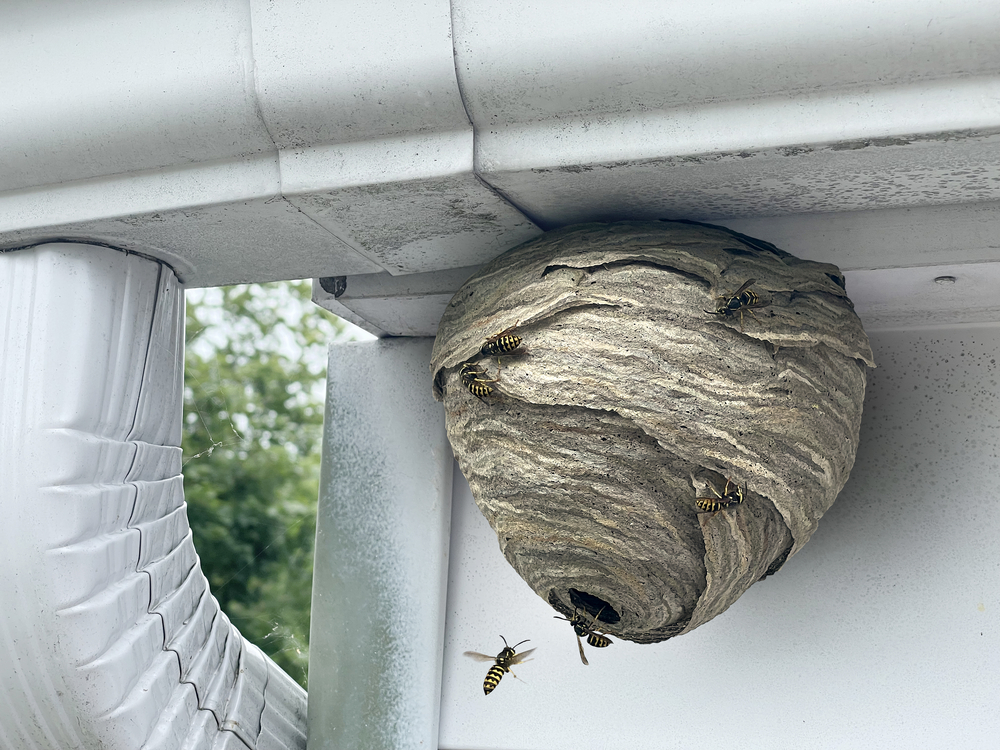
How to get rid of wasps
Wasps are an inevitability of the great British summer with a variety of species causing chaos in gardens and kitchens across the nation every year.
The wasp species is large and incredibly varied but almost all species share the possession of a painful sting and will swarm in large numbers if they feel under threat.
For a professional, wasp nest removal Liverpool is relatively easy and with hundreds of related jobs completed every summer a BPCA expert will have the tools and equipment to have a nest fully removed from your property in a matter of minutes.
DIY wasp nest removal is certainly possible, but it is not recommended and has the potential to go horribly wrong if you don’t know exactly what you’re doing and have the right tools for the job.
What exactly these right tools are will depend on a number of different factors including the location and size of the nest. Bear in mind that any DIY nest removal is conducted at your own risk and serious injury or even death are possibilities if you suffer an allergic reaction to multiple wasp stings within a short period of time.
In this article, we will give you all the information that you need about wasps, wasp’s nests, and what to do when you find evidence of an infestation.

Why are wasps considered pests?
When left alone, wasps are not generally a major threat to human health and unlike most other pest species do not do any serious damage to property. So why can they still be classed as pests?
Well, the issue comes when they are disturbed. Bees will only sting when they feel as though their life is threatened and they have no other choice. Wasps, however, as they can sting multiple times will be less conservative and won’t hesitate to sting anyone that they feel is a threat to them or their queen.
For this reason, if wasps build their nests on your property, under porches or in the eaves of an attic/shed are particularly common spots, they do pose a serious threat to human health and can be considered a pest species.
Wasps will only tend to be a pest if disturbed by humans or pets, in contrast to other more invasive pests who directly target property and people.
That said, you would be wise not to underestimate the threat that a wasp nest can pose as multiple stings in a short period of time is not only extremely painful but can lead to anaphylaxis in some individuals.
When do wasps pose the biggest threat?
At the beginning of winter, the vast majority of wasps in a colony will die, leaving the queen to find somewhere to hibernate and lie in wait for spring to come.
Once temperatures rise at the beginning of the spring, the queen will begin to build her nest using chewed up paper that she spits into a suitable shape. She then lays her pre fertilised eggs which become worker wasp whose task it is to expand the nest further.
For this reason, if you see a very large nest at the beginning of the spring or during the winter, the chances are that it is from the previous year. That said, you don’t want to risk it and the best thing to do is to call a professional pest controller as soon as possible to come and have a look.
It is during the autumn, therefore, when wasps tend to pose the biggest threat, especially towards the end of the season when the colony is at its largest.
How to get rid of wasps

There are multiple ways that you can attempt to remove wasps at home. The first is to use a towel or cloth to cover the nest and submerging it in water to drown the wasps completely. Another is to mix water and dishwashing liquid in a bottle and spraying the insects directly.
Unfortunately, both these methods require you to get up close to the insects, putting yourself in harm’s way and the consequences of a single slip up or misplaced step could be disastrous.
For reasons that are hopefully clear at this point we would NEVER recommend attempting to deal with a wasp nest by yourself. Pest control companies provide wasp nest removal services on a regular basis and won’t charge too much for the service.
It just isn’t worth putting your own or your family’s health at risk for the sake of saving a couple of quid.